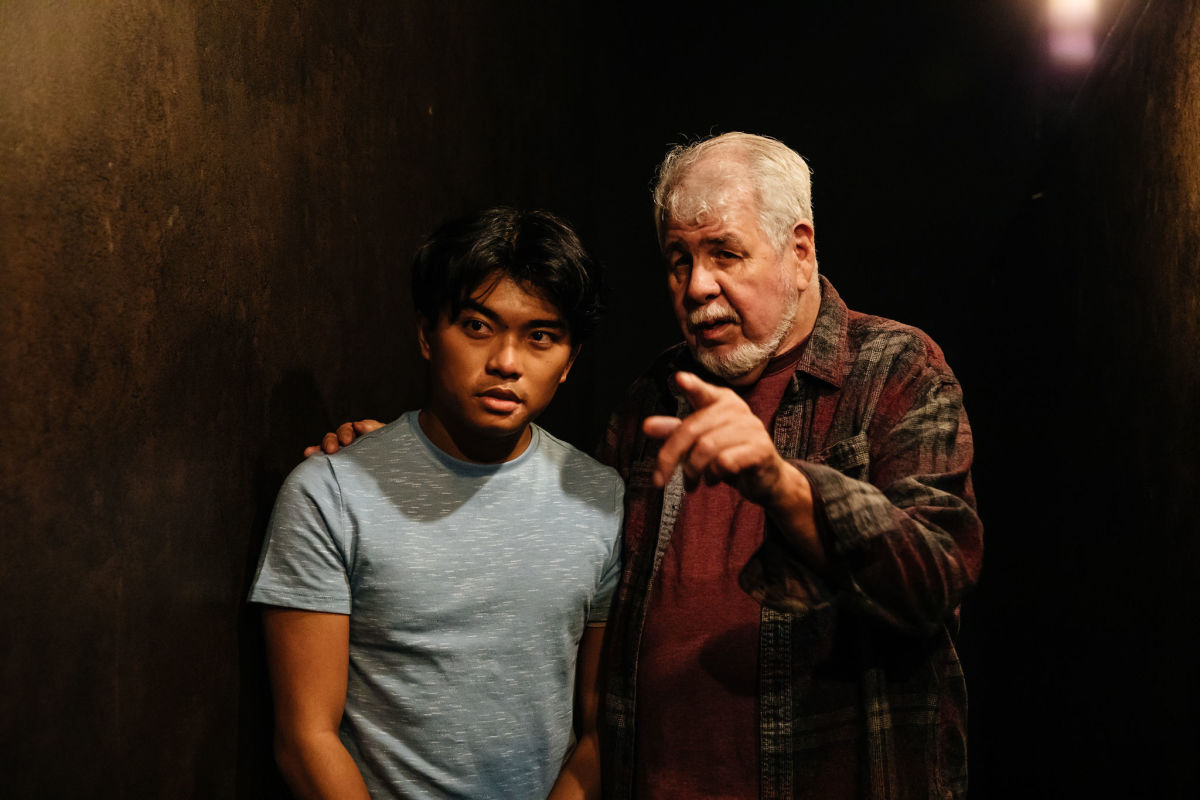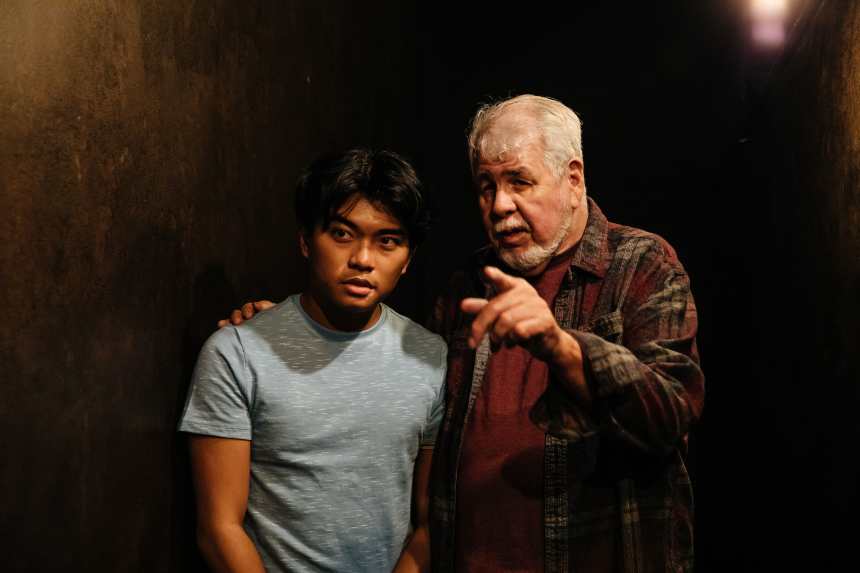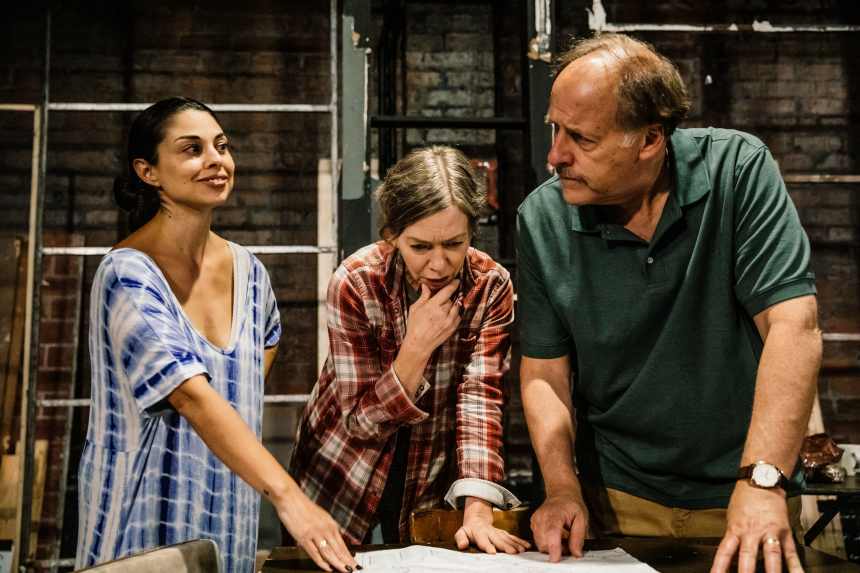At a moment when gay hatred is once again raising its ugly head—witness Gov. Ron DeSantis’s “Don’t Say Gay” bill prohibiting Florida school teachers addressing gender identity or sexual orientation in their classrooms—“The Great Wilderness” has arrived just in time at L.A.’s Rogue Machine Theatre.
The three of us–Dick, Sharon, and Dick’s daughter Linnea–attended the play “The Great Wilderness” several weeks ago, which recently ended its run at LA’s Rogue Theater. Rather than a standard review–such as the fine one our colleague Eric A. Gordon recently wrote–what follows is a conversation between the three of us about our different interpretations and reactions to this thought-provoking work.
First, let us set the stage.
Playwright Samuel D. Hunter sets his play in a remote, rundown lodge in rural Idaho where Walt—deftly played by John Perrin Flynn—has spent decades using Christian scripture, gentle conversation, and his own life story to persuade young boys to cure themselves of their sinful homosexual yearnings.
But a painful fall, fading memory, and urging by his friends have persuaded Walt that it’s time to lay down his life’s work and move into a retirement home—“Oh, please don’t call it a ‘home!’” As he finishes packing up his lifetime of memories, a last young potential target for Walt’s Christian conversion therapy unexpectedly arrives in the person of Daniel—a shellshocked survivor of several other conversion attempts, played by Jeffrey Delfin.
Walt and Daniel engage in a slow-motion dance, Walt assuring the boy that he’s safe there, that there won’t be any electric shocks, that it’s just about prayer and conversation, while Daniel struggles to emerge from his self-hating silence laid on him by his parents. Just as a mutual understanding begins to blossom between Walt and Daniel—there’s a lovely scene involving heirloom tomatoes—the boy goes for a walk in the surrounding woods where he gets lost until late in the play.
Arriving to help Walt close down the retreat are his ex-wife Abby (Rachel Sorsa) and her husband (Tony Pasqualini), who if anything are more rigidly religious and self-assuredly homophobic than Walt. We learn that Abby helped Walt found his conversion program after their son committed suicide soon after informing his parents that he was gay.
Scroll to Continue
Recommended Articles
When efforts by the three of them—and a forest ranger they call for help with the search (Tania Verafield)—fail to find the boy and then a lightning strike lights the nearby forest on fire, they call Daniel’s mother, Eunice (Jacquelin Lorraine Schofield), who arrives with her own load of guilt-ridden Christianity.
Wrestling with Christianity
As Walt struggles with his doubts of what he’s been doing all these years, the playwright does a great job of showing that doing the wrong thing, even with the best of intentions, is still wrong. Now that he’s finishing his life’s work, Walt grapples with doubts of the outcomes of his work and wonders if anything he did was actually helpful, or just a way for him to soothe his own perceived moral failings as the father of a son who committed suicide.
Within the confines of the play, it’s hard to say for sure if Walt’s version of conversion therapy was more or less harmful than the more violent methods that Daniel had experienced, or thousands of real-world children and young adults have experienced.
No doubt, Walt’s methods of listening and talking offer a ray of hope. While the three of us certainly believe that ‘conversion’ is absolutely harmful and the wrong approach to a reality faced by thousands if not hundreds of thousands, everyone needs someone to talk to, particularly those children with thoughts or knowledge of their sexuality living in devoutly religious households.
The cast did a marvelous job representing points that may well not reflect their own thoughts at a time a hyper-religious segment of our society can only seem to hurl hateful rhetoric.
The Playwright
Playwright Samuel D. Hunter, who grew up in a small Idaho town, sets his plays in staff break rooms, cramped apartments, and retirement homes—and a rundown cabin in A Great Wilderness—populated with ordinary people wrestling to make meaningful human connections. His other plays include A Bright New Boise, The Whale, The Few, and Rest—in addition to A Great Wilderness—which Rogue Machine has staged.
Please share your thoughts in the comments section below.
Please also share your thoughts about plays you think we should discuss.










